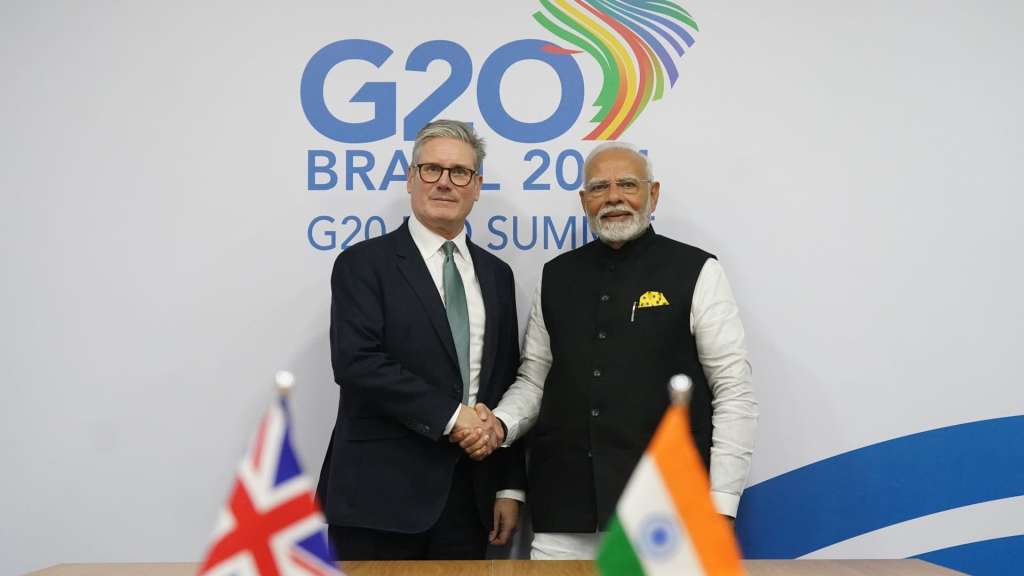The United Kingdom and India have finalized a bilateral trade agreement, announced Tuesday, which aims to significantly reduce tariffs on key exports, including UK whisky and automobiles, amid a climate of escalating global trade tensions driven by the United States.
The agreement stipulates that India will gradually decrease import taxes on UK goods, with most products expected to achieve “full tariff-free” status within ten years, as per information from the British government.
This trade agreement emerges during a period marked by increased global trade disputes. Recent actions by U.S. President Donald Trump, which included the imposition of higher tariffs on imports worldwide, have created friction with both allies and rivals alike.
The UK government anticipates that the new trade deal will boost bilateral trade by £25.5 billion ($34 billion), building upon an existing trade volume of £42.6 billion established in 2024, which represented an increase of 8.3% from 2023.
As of December 2024, the UK recorded a £8.4 billion trade deficit with India concerning goods and services, with India ranked as the UK’s 11th-largest trading partner.
This agreement marks the first significant trade pact signed during the tenure of Prime Minister Kier Starmer.
In a statement following the agreement, Prime Minister Starmer expressed optimism, describing the deal as a “landmark” achievement that will bolster the economy and benefit British citizens and businesses alike. He emphasized the importance of enhancing alliances and removing trade barriers as essential components of his government’s strategy for economic fortification.
Indian Prime Minister Narendra Modi took to X to highlight the significance of the agreement, noting that it would strengthen ties between India and the UK. He referred to it as a “historic milestone,” confirming the conclusion of a Free Trade Agreement that would benefit both nations.
Modi also indicated that the arrangements established through this deal would not only deepen the Comprehensive Strategic Partnership but also spur trade, investment, job creation, and innovation within both economies.
The timing of the agreement is particularly relevant given the escalating trade tensions involving the United States.
Keshav R. Murugesh, CEO of WNS Holdings and chairman of the Confederation of Indian Industry UK Business Forum, remarked that the Free Trade Agreement would fortify the economic resilience of both countries by opening new markets and minimizing the risks associated with external disruptions. He noted the increasing trade tensions globally, underscoring the relevance of the agreement in this context.


























